Demons in Krishna's pastimes
- Ankita dash
- Apr 1, 2022
- 4 min read
Updated: Feb 18, 2025
There is a theme of the different demons in the Krishna lila, and each of them can teach us something for dealing with the demoniac forces inside our own lives, and in the world around us.
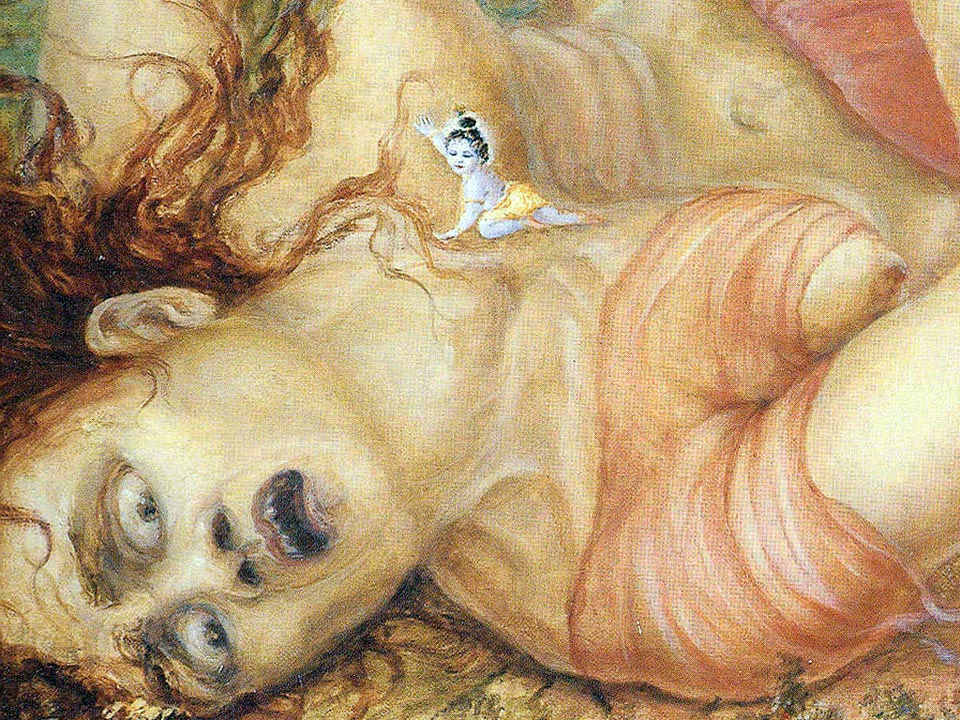
PUTANA - (the witch) – the pseudo guru
Putana represents pseudo guru or false guru.
The pseudo-guru may appear in these forms 1. A deceitful, so-called guru who preaches sense gratification or liberation. 2. The material mind - which when untamed is only a miserable guru.
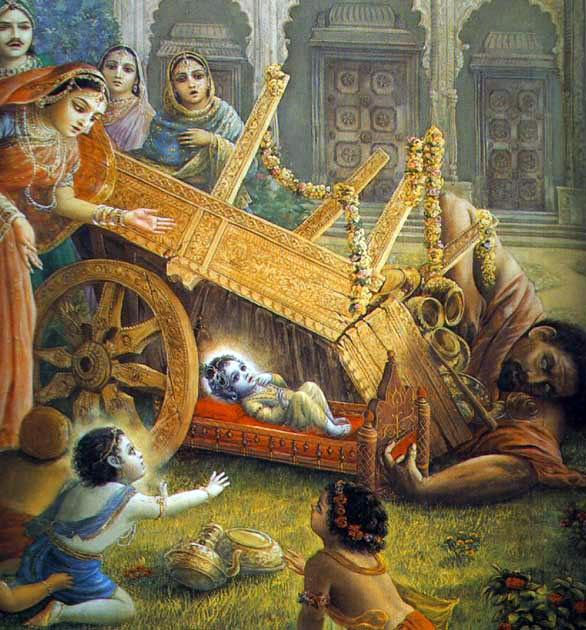
SAKATASURA - (the cart demon) – bearing the burden of a cart-load of old and new bad habits
Sakatasura represents lethargy, dullness, and false pride. Krishna removes this contamination by kicking it aside. The tendency to carry the cartload of bad habits accumulated in this life and previous lives.
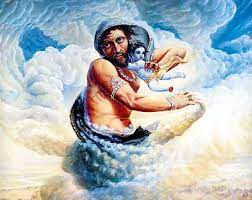
TRINAVARTA- (the whirlwind demon) - false pride that comes from material mundane scholarship, which leads to bogus philosophies.
Trnavarta represents the false pride produced by useless scholarship, which gives rise to endless debates and arguments, dry reasoning and dry logical indulgences in the association of people who are attached to such things. It produces controversy which is disloyal to the path of pure bhakti, such as Mayavada.
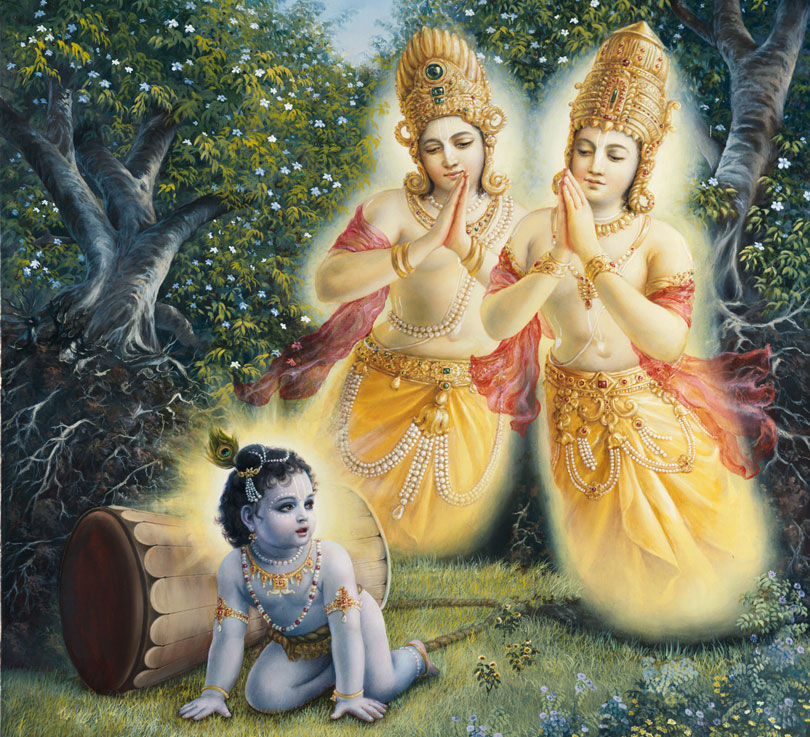
NALAKUVERA AND MANIGRIVA - (breaking the twin arjuna trees) – Arrogant pride that comes from puffed-up prestige, which is rooted in madness for wealth.
Being puffed up in wealth gives rise to meat-eating, intoxication and lust. General hard-heartedness, debauchery and other disgraceful activities. Krishna delivers these two demigods who were involved in all such activities.
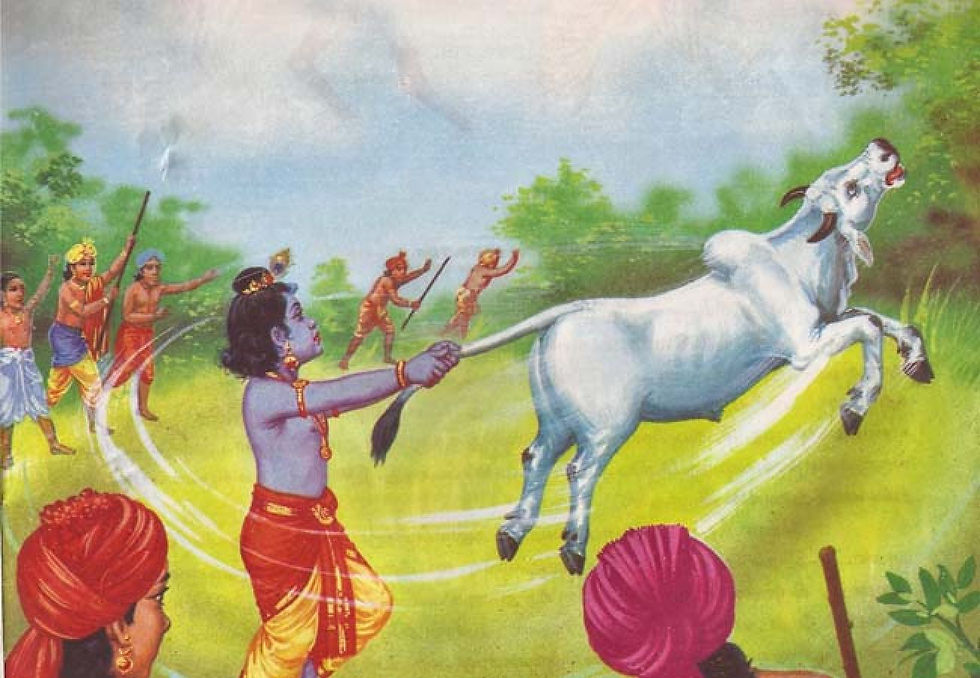
VATASURA - (the calf demon) – an immature mentality which gives rise to a type of greediness and wicked type of mischievousness.
It gives rise to a type of greediness for sense gratification through which one becomes absorbed in materialism.
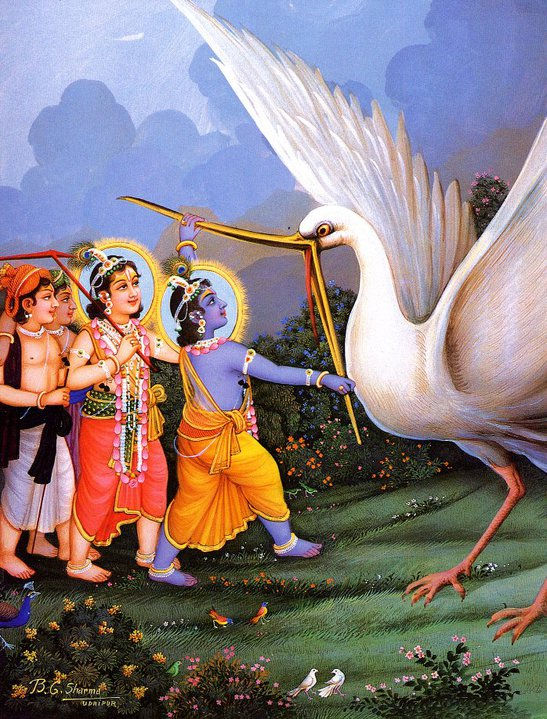
BAKASURA - (stork demon) – False religiosity.
He represents cunning duplicity, deceptive behaviour and hypocrisy, the outward manifestations of a false lifestyle of cheating activities.
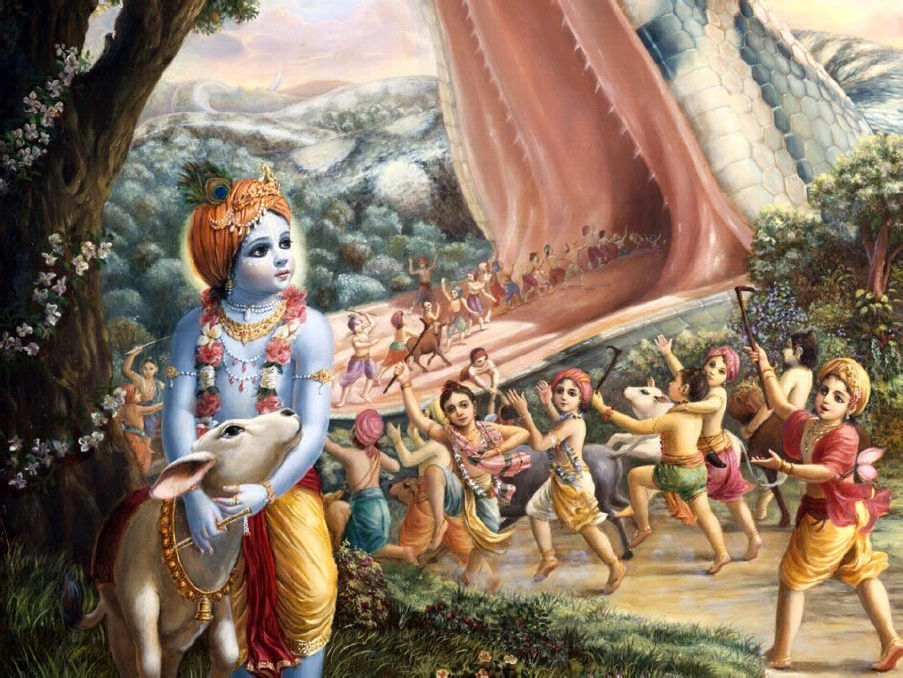
AGHASURA - (the snake demon) – Aghāsura is cruelty personified.
Represents the mentality of cruelty to others, violence and causing trouble to others out of envy. This attitude is an offense against the chanting of the holy names. It may also manifest in the form of an unwillingness to help other living beings by giving them Krishna
consciousness.
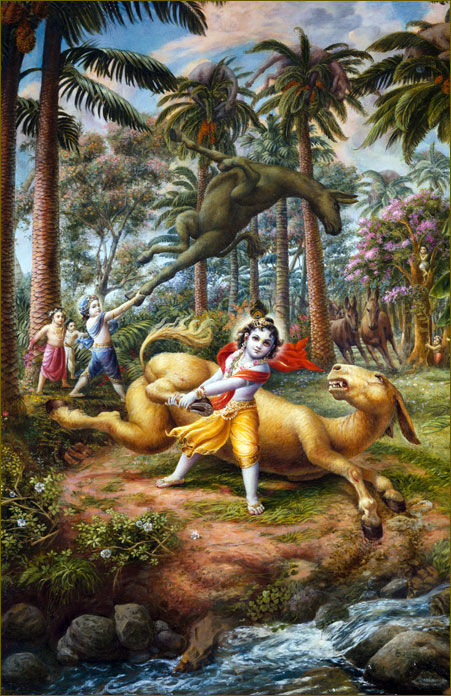
DHENUKASURA - (the ass demon) – Ignorance of knowledge of the soul through gross materialistic intelligence and foolishness
ignorance of spiritual knowledge. Another thing about this donkey demon. What is he doing? He is protecting this tāla fruit, the fruits of his activities, which are actually meant to be offered to Krishna.Our donkey propensities are destroyed by the bonafide spiritual master. He teaches us about the importance of surrendering to Kṛṣṇa and becoming free from the unnecessary burden of our karmic reactions. Balarāma, the original spiritual master teaches us that there is no need to unnecessary carry the big burden of our materialistic responsibilities. And there is no need to carry the fruits of our activities, our possessions for our own enjoyment, offer it to Krishna. This is how Dhenukāsura or the donkey demon is killed by Balarāma.
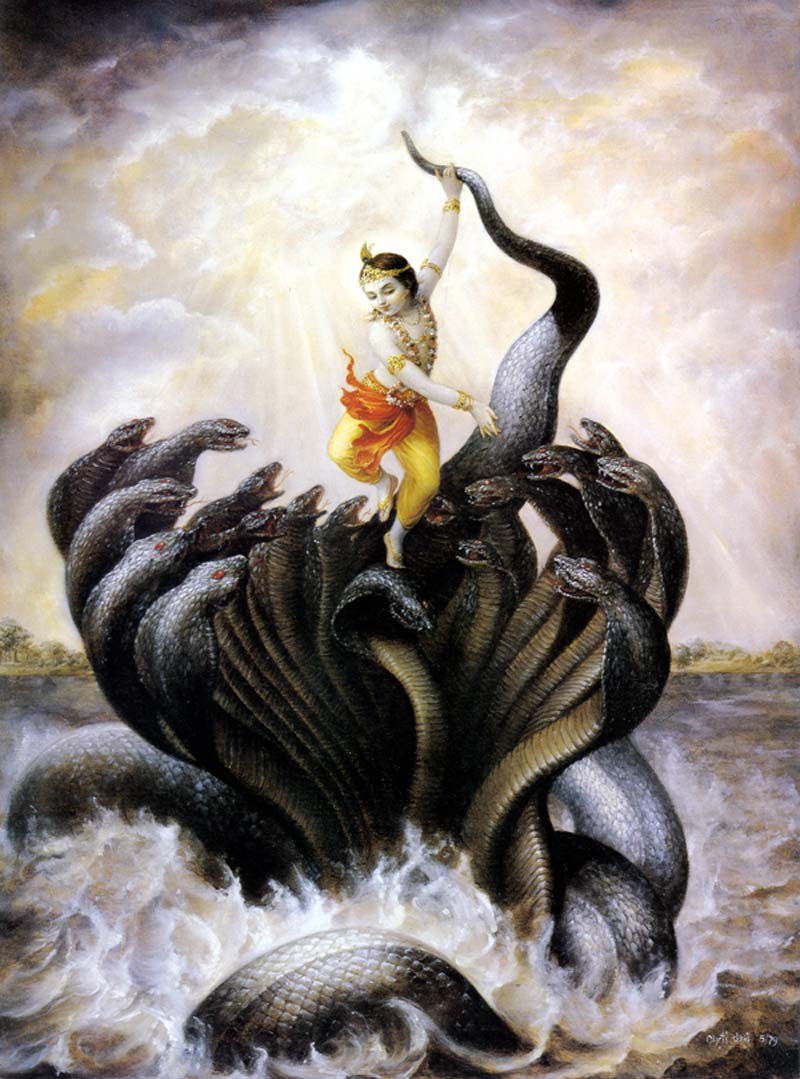
KALIYA - (chastising the Kaliya serpent) – brutal cruelty, maliciousness, pride, envy and a snake-like wickedness.
Kaliya tried to pour his poison into the hearts of innocent Vaisnavas, which Krsna cannot tolerate, so then the Lord kills him.
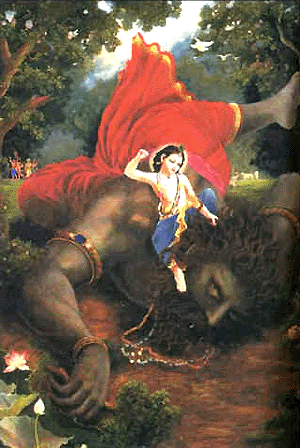
PRALAMBASURA - (killing the Pralamba demon)
Represents lust for the opposite sex, and the desire for profit, adoration and distinction. This Pralambāsura is impersonalism. This is impersonalism also is killed by Balarāma, the original spiritual master.
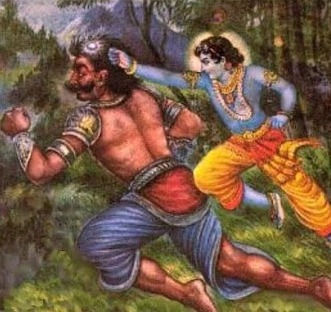
SANKHACUDA - (the conch-shell demon
) – proneness toward acquiring name and fame, and desire for sensuous enjoyment, under the plea of devotion.

ARISTASURA - (the bull demon) – pride arising from indulging in false religions invented by cheaters which causes neglect of devotional service (bhakti).
Due to their contaminated condition they show disrespect to the process of pure devotional service to Krishna.
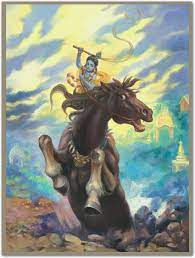
KESI DEMON - (the horse demon) – The feeling that “I am a great devotee and spiritual master.”
Pride personified, also the false ego arising from attachment from wealth and material accomplishments.
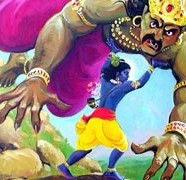
VYOMASURA - (the demon in the sky) – associating with thieves people who put themselves forward as avatars,
Represents all the cheators and impostors who disguise themselves as devotees and avatars.
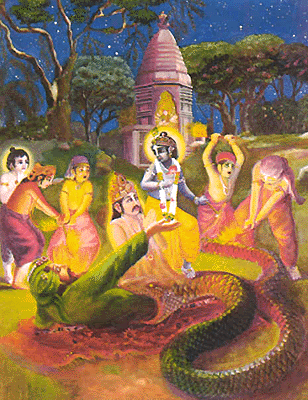
VIDYADHARA - (the snake) – how Krishna saves the truth of devotional service
Rescuing the truth of Krishna consciousness from being swallowed by the impersonalists and other mayavadis. It illustrates how devotees must avoid the company of such snake-like people.
Bhaktivinoda Thakura says: “The devotee who worships the holy name should first petition the Lord for the strength to cast out all these unfavorable tendencies—and should pray thus before Lord Hari on a daily basis. By doing this regularly, the devotee’s heart will eventually become purified. Sri Krishna has killed a number of demons which may arise in the kingdom of the heart—so in order to destroy these problems, a devotee must cry very humbly before the Lord and admit defeat—then the Lord will nullify all contaminations.”

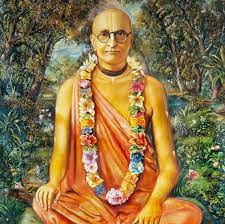
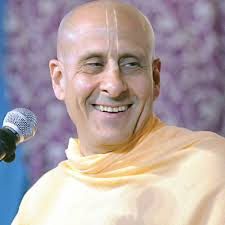



Comments